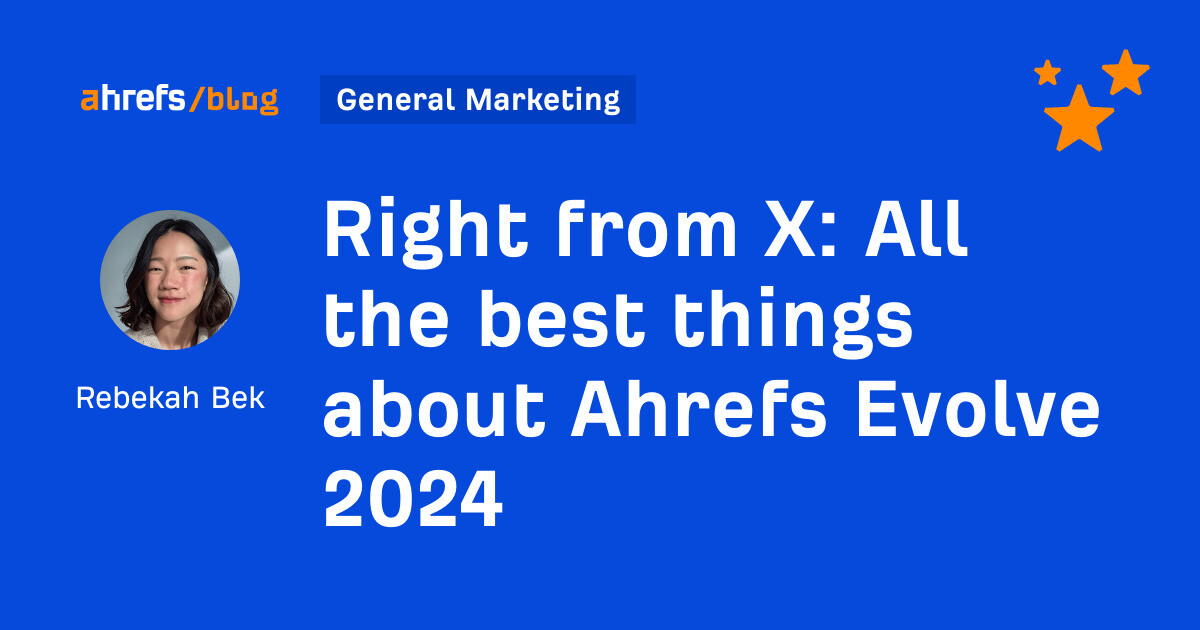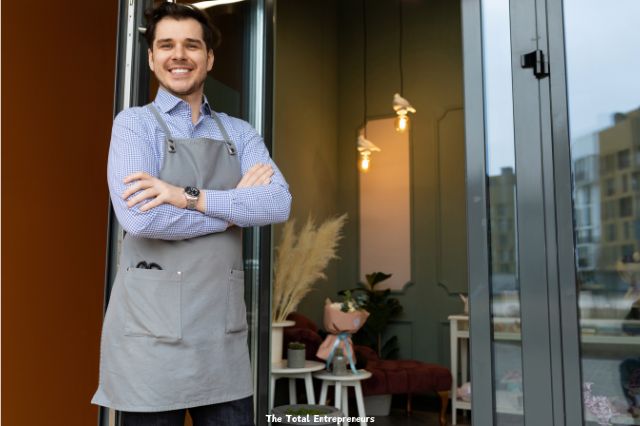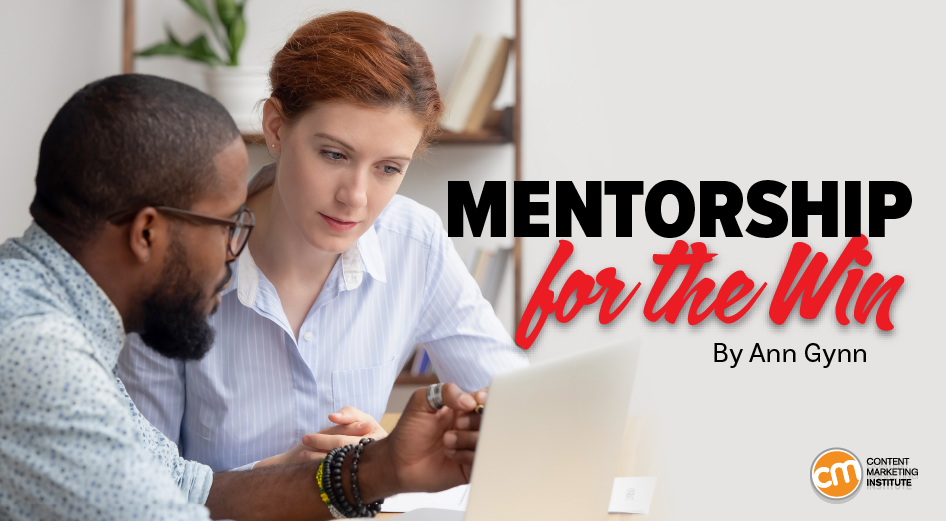Mentorships took the No. 1 spot in LinkedIn’s 2023 Workplace Learning Report.
The subject beat diversity, equity, and inclusion (No. 2), upskilling and reskilling (No. 3), leading through change (No. 6), digital fluency transformation (No. 7), and hybrid/flex work (No. 9), to name a few.
Mentoring’s top ranking doesn’t surprise me, given its proven impact on career development. It’s one of the reasons the Content Marketing Institute launched its year-long mentor program in 2021. (Applications for the 2024 program are available through March 1.)
Benefits of mentoring
Much research on mentoring focuses on the benefits for youth, but the benefits don’t stop after you graduate.
A Deloitte-sponsored study detailed the non-monetary benefits of mentoring, including:
- 87% of mentors and mentees say they feel empowered by their relationship and have developed greater confidence.
- 82% say their mentoring relationships help foster meaningful connections between the mentor and mentee and across departments and the organization.
- 84% say their relationship provides two-way inspiration.
Earlier this century, Gartner conducted a five-year study of Sun Microsystems’ mentorship program. Among the findings:
- 25% of employees in the program saw a salary increase compared to 5% of the workers who did not participate.
- Mentees were promoted five times more often than those without mentors.
But the benefits don’t stop with the mentees. Mentors at Sun were six times more likely to be promoted than non-mentors.
Mentor perspective
Over the years, Vish Khanna added the mentor role to his experience, first as a coach for his child’s sports team and later in his professional world — building marketing teams in a way that requires mentorship. The 2015 Content Marketer of the Year now works as the head of marketing at Shelf.
As he explains, Vish hires marketing makers, not marketing managers. “I’ve got to find the right person and nurture their skillset and ability to play that type of (manager) role, and that demands mentorship,” he says.
For the past two years, he’s also participated as a mentor in the Content Marketing Institute’s program. “A good mentor-mentee relationship is very much peer-based. I just may have a decade more experience.
“I was surprised by how much these conversations with my mentees have made real changes in their day-to-day workflows and how I do my job. I’ve made substantial changes in my approach to marketing based on what I’ve learned from my mentees.”
CMI mentor Deanna Ransom, co-founder and co-CEO of Red Monkey Consulting, agrees. “What I have truly enjoyed is the opportunity to be able to both give and receive from the relationship,” she says.
Vish says he touches base with his former mentees every month or two and sometimes asks for advice because they know Vish’s business challenges really well.
But that strong relationship started with an approach Vish learned from working with many startups and product planning — asking dozens of questions right away to identify the mentee’s challenge(s).
“Run through 20 questions through a pipeline, and you’re going to hit a bunch of holes. It’s just the nature (of things) because not everybody has everything tightened up,” Vish says. “You get there (identifying the challenges) pretty quickly — what’s happening on a tactical and structural level in somebody’s marketing engine — and then figure out.”
But before asking questions or sharing thoughts, Vish and his mentees signed a non-disclosure agreement. He says the document lets both parties speak honestly and openly about their challenges.
Mentee perspective
Vahag Aydinyan, now a senior content marketing manager at 7shifts, was a mentee in the CMI program in 2022. It went so well that he and his mentor, Megan Gilhooly, continued to meet monthly last year.
While Vahag has had some short-term mentors, the CMI program was his first in a formal program. As a then-new content marketing manager who needed to scale a team of one into a team of four, he was eager for a mentor’s input.
He says two outcomes from the mentorship have been helpful:
- Learning a lot from someone who has gone through the same stuff in her career. He says he could tackle challenges easier because he had someone to help him.
- Receiving validation for his ideas and solutions from an experienced professional before he shared them in the workplace.
The mentoring pair usually met once a month, though sometimes he would ask to jump on a call to bring up a topic important at the moment. “I come with notes … the more prepared you are for this kind of meeting, the more you get out of it,” Vahag says.
Among Vahag’s advice for mentees:
- Be clear with expectations.
- Make sure to put in enough thought. Make it easy for your mentor to help you.
- Be open to the mentor’s advice, even if it’s something you may not want to hear.
How to find a mentor
An Olivet Nazarene study found that 61% of mentors and mentees work at the same company. But there are advantages to working with a mentor who doesn’t have the same employer.
Divya Bisht, a content strategist, worked with mentor Keneisha Williams in the CMI program before becoming a Content Marketing World speaker. “It can be difficult to get advice from a workplace supervisor. But with a mentor who worked outside of my company, it was easier to get feedback and gain valuable insight,” Divya says. “Keneisha offered a fresh external perspective on my projects, helping me see what went right, why certain elements failed, and what I could improve in the future. She really helped me grow as a strategist.”
You can still find a mentor or mentee if you don’t participate in a formal mentor program like CMI’s. The Olivet study found that 25% of mentees were invited by their mentors, and 14% asked someone to mentor them.
Treat your mentor search like a lead-generation activity — you’ll likely reach out to many, with one or two converting into a mentor-type relationship. That’s what Vish says he’s done. He’s reached out to people who have done something that interests him and lets them know he wants to learn more about that thing. A couple of those outreach opportunities turned into long-term relationships.
He shares one example from a previous role in organizing author events. Vish’s hero was Frank Chin, an author and pioneer in Asian-American theater. He asked Frank to attend. The invitation was accepted, and Vish spent time with him over the three days. “The relationship continued for years after that,” Vish says.
Expand your search for mentors outside your industry. “One of my greatest mentors who taught me about commercialization in the pharmaceutical industry was a doctor — working closely with him and learning about an entire business world,” Vish says.
After the NDA
Though a non-disclosure agreement is a smart first step, it’s not the only document that should be created. Both mentor and mentee should get on the same page as far as expectations and how the two will work together.
EDUCAUSE offers this helpful guide on mentorships. It details the four phases of the relationship – preparation, negotiating, enabling growth, and closure. It includes a pre-partnership checklist to ensure you’re ready to do it, as well as interview questions to identify potential topics and more. I particularly find its agreement checklist helpful to ensure each person understands the relationship and expectations. Among the questions:
- How much time can be committed regularly to the relationship? Be realistic.
- Write down goals and analyze them to meet the SMART criteria.
- Agree on a discussion format (e.g., formal agendas, topic-driven agendas, check-in conversations).
- Be flexible. Expectations and plans will change as your relationship progresses.
- Articulate criteria for success. What does success “look” like?
I’d like to share your mentoring experiences with CMI readers. Have you had a mentor or mentee? How did you find your partner? What did you like about it? What could have been better? Please tag us on social media.
Updated from a January 2023 article.
HANDPICKED RELATED CONTENT: Education as a Marketing Strategy: 8 Brands Doing Online Classes and More
Cover image by Joseph Kalinowski/Content Marketing Institute











